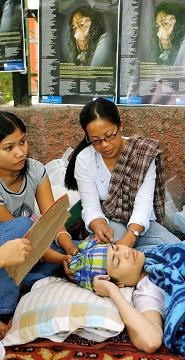Protester begins tenth year of hunger strike over Indian Army Act |
||||
Alone in her isolation cell in a high security ward of an Indian hospital, a peaceful protestor will mark an extraordinary anniversary this weekend: the start of the tenth year of what is thought to be the world’s longest hunger strike. Since November 2, 2000, Irom Sharmila, 37, has refused to eat. She is protesting against a law that she says has allowed the Indian military to kill innocent civilians with impunity for decades as it has battled separatist insurgencies in the northeast states of Manipur, Assam, Meghalaya, Nagaland, Tripura and the Union Territories of Arunachal Pradesh. Convicted of attempting to commit suicide, Sharmila has been held in solitary confinement – most recently in Imphal, the capital of her home state of Manipur – since the first week of her fast. In the confines of her sparse room, she is force fed by Government doctors through a nasal tube. A kind of gruel is pumped into her stomach – a mixture of vitamins, protein, laxatives and lentil soup that has kept her alive for nearly a decade. Her brother Irom Singhjit Singh told The Times: “Mentally she is very strong, one of the strongest women on this Earth. Even as a child she was different to her siblings – stronger. But physically she is getting weaker every day.” |
 |
|||
| Back to top Back to Home Page | ||||